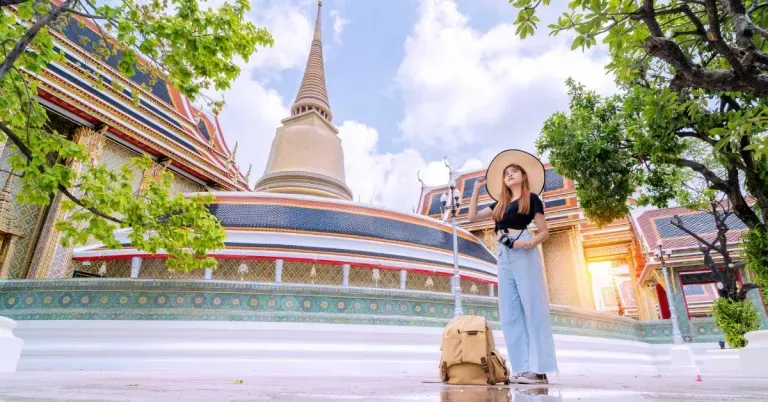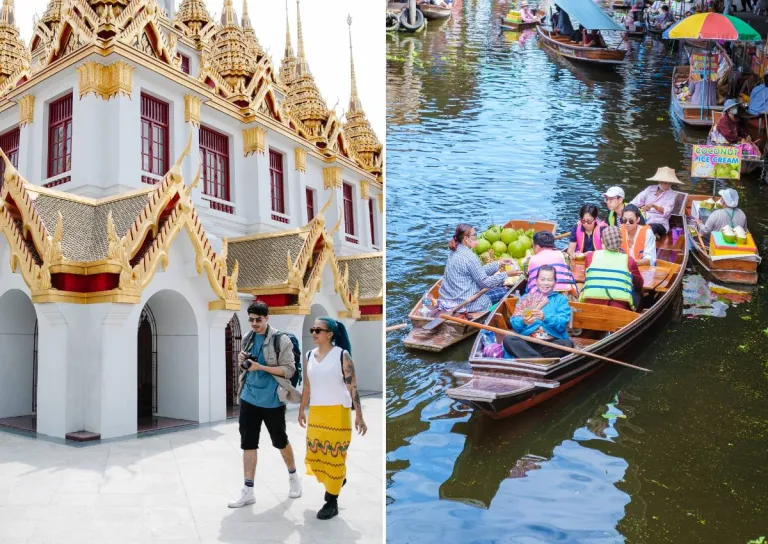Our favourite places to stay on this sleepy Cebu island.
Destination Thailand Visa: Extended Stays for Digital Nomads and Travellers

Thailand is rapidly emerging as a top destination for Filipinos, driven by the popularity of Thai BL series, vibrant shopping centres, and an increasing interest in Thai cuisine. Now, Thailand has introduced the Destination Thailand Visa (DTV), offering remote workers and students of Thai culture an extended stay. Here’s what you need to know about this exciting new development.
Also read: 10 Budget Dos & Don’ts in Bangkok I Wish I Knew Before Flying to Thailand
What we know about the Destination Thailand Visa

Announced in June 2024, the Destination Thailand Visa, or digital nomad visa, caters primarily to freelancers and digital nomads, allowing them to stay in Thailand for up to five years. This initiative marks a significant change from previous policies that restricted digital nomads to 60-day tourist visas or required them to apply for the stringent Long-Term Residence Visa.
The new visa is part of Thailand’s efforts to boost its economy and tourism. According to a 2023 report by the Bangkok Post, over 120,000 digital nomads already consider Thailand their home base. The introduction of the DTV is expected to solidify Thailand's reputation as a premier destination for remote workers seeking a tropical and culturally rich environment.
To qualify for the DTV, applicants must be self-employed or work for a company outside Thailand and be at least 20 years old. Additionally, they must have at least ฿500,000 (approximately ₱804,000) in savings. Unlike most digital nomad visas, the DTV also accommodates individuals pursuing cultural activities in Thailand, such as Thai cooking classes, Muay Thai training, or participation in music festivals, seminars, and medical treatments.
Application Process
While the exact application process and requirements are still being finalised, applicants will need to schedule a visa appointment at a Thai Embassy or apply online through the official Thai e-visa website. The visa application fee is ฿10,000 Thai baht (approximately ₱16,050). It is yet to be determined if there will be an annual minimum income requirement, as current long-term visa policies mandate a minimum annual income of US$80,000 (approximately ₱4,673,800) for remote workers.
Despite the five-year validity of the DTV, continuous stay is not permitted. Visa holders must leave and reenter the country every 180 days (six months), with an additional fee of ฿10,000 required at each reentry.
Also read: 10 Best Islands in Thailand for a Beach Getaway
The Destination Thailand Visa presents an enticing opportunity for digital nomads and cultural enthusiasts to experience an extended stay in Thailand, blending work and leisure in one of Southeast Asia's most dynamic and beautiful destinations. As applications are now open, Thailand is set to welcome a new wave of global travellers looking to immerse themselves in its vibrant culture and idyllic landscapes.
Featured image credit: Jittawit.21 via Canva Pro
Published at
About Author
Anne Mercado
Subscribe our Newsletter
Get our weekly tips and travel news!
Recommended Articles
10 Bantayan Island Resorts, Hotels, and Rentals for Your Tropical Escape 10 Best Mountain Cafes in the Philippines for Your Peak Coffee Experience Coffee date on the mountains, anyone?
10 Family Outing Ideas in Metro Manila Under ₱500 Looking for a weekend bonding with the family under ₱500? Head to these places, pronto!
10 Long Weekends in the Philippines in 2023 Book those flights ASAP.
Top 10 Post-Breakup Destinations for Healing and Self-Rediscovery Ready for a solo travel?
Latest Articles
Ultimate Camarines Norte Travel Guide: Waterfalls, Beaches, and More From surfing to secret waterfalls, Camarines Norte is your next escape!
Legoland Shanghai Opening in 2025: What to Expect New theme park alert in China
Pahiyas Festival 2025: A Vibrant Celebration in Lucban Quezon Pahiyas is back and brighter than ever!
Top 10 Family-Friendly Things to Do in Europe Unmissable experiences for all ages
Scoot’s Direct Flights from Singapore to Iloilo Are Finally Here — Here’s What You Need to Know Fly direct from Singapore to Iloilo with Scoot!

